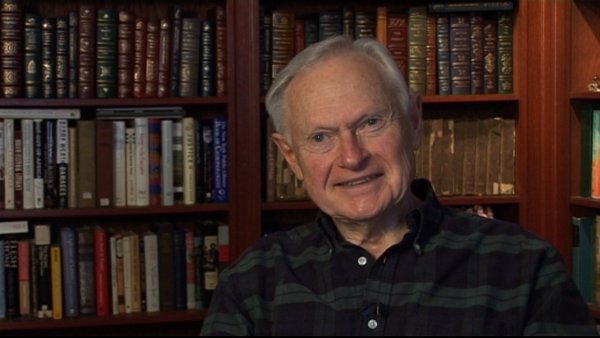NEXT STORY

Judgement as the ultimate tool of a physician
RELATED STORIES

NEXT STORY

Judgement as the ultimate tool of a physician
RELATED STORIES


|
Views | Duration | |
|---|---|---|---|
| 41. The philosophy of surgery | 261 | 04:24 | |
| 42. Judgement as the ultimate tool of a physician | 206 | 04:01 | |
| 43. The art of keeping yourself calm | 1 | 261 | 05:12 |
| 44. Surgery is fun! | 200 | 04:09 | |
| 45. Devouring medical literature | 186 | 03:54 | |
| 46. Averill Liebow and the best compliment I've ever had | 246 | 05:37 | |
| 47. The difference between information, knowledge and wisdom | 241 | 04:45 | |
| 48. The importance of being curious | 203 | 04:44 | |
| 49. 'Be kind, for everyone you meet is fighting a great battle' | 1 | 270 | 03:22 |
| 50. Percy Shelley's moral imagination | 207 | 04:34 |


And so yes, charisma embodied. So, it was exciting for a young fellow for me. I had never thought of myself, in any way, either characterologically or physically, like a surgeon.
A good number of the surgeons I knew had been athletes. A good number of the surgeons that I knew had been artistically inclined. I had been neither. I love sports, I played every sport that, at that time, was available to kids who lived in the city: stickball, softball, some baseball, even was on a football team for one year, but had never been really and truly organized sports.
So this notion of ongoing teamwork and fellowship was nothing that had any particular appeal to me. I was essentially very much, although I had a large group of very close friends, they were intellectual friends. And we did play sports together in our clumsy way. But I was pretty clumsy, and when I was among the really good athletes and they had to choose up who was going to be on which side, I was always one of the second or third people. I did… I loved basketball and I wasn't even good enough in high school to try out for what was essentially a really bad basketball team. That was my level. So, I come in and I watch those hands and I watch the entire smoothness and facility of the performance. And that's what I want to be. How can I be like this? And as a result of that two-week experience with Jose Patino, I applied for a surgical internship and became a surgical intern at the Yale New Haven Hospital. And here I was, with these hands that had never been able to completely make a real model airplane or carve a boat, or… I could never do it, so how was I going to learn about surgery?
Well, very quickly, I understood that a surgeon really operates with his mind. His hands are accessories to his mind. You don't mind that I say his? In those days, everybody was a 'his'. His hands are directly connected to the thinking part of his brain. And every moment, he is making decisions.
And the more meticulous and careful he is in his work, the more direct connection there is. It's not reflex. Some of it's muscle memory and reflex, but it really is a coordinated effort that comes out of his conscious thinking mind. And once I realized that, of course, it had great appeal to me, but how was I going to overcome a basic clumsiness?
The same way I had overcome really having a Bronx accent. Part of it was conscious, but part of it was just being with my peers. And it was the most remarkable thing: by the time my internship – it was only one year – my surgical internship was over, I could work with perfect fingers, just like the best of the bunch. And not only that, but I also came to understand that I was recognized for a facility I had with my hands. Whoever would have thought such a thing?
I learned to use my left hand. And I'm so, in real life, so clumsy with my left hand, that in my basketball-playing days… we used to, in those days, use two-handed set shots. You never see that anymore. My right hand would always go out beyond my left, because I was so right-handed. And yet here, I'd get in the operating room, and who did this person become as soon as he put a gown and mask, but somebody else.
Sherwin Nuland (1930-2014) was an American surgeon and author who taught bioethics, the history of medicine, and medicine at the Yale University School of Medicine. He wrote the book How We Die which made The New York Times bestseller list and won the National Book Award. He also wrote about his own painful coming of age as a son of immigrants in Lost in America: A Journey with My Father. He used to write for The New Yorker, The New York Times, Time, and the New York Review of Books.
Title: The philosophy of surgery
Listeners: Christopher Sykes
Christopher Sykes is a London-based television producer and director who has made a number of documentary films for BBC TV, Channel 4 and PBS.
Tags: charisma, surgeon, sport, surgical internship, clumsiness
Duration: 4 minutes, 24 seconds
Date story recorded: January 2011
Date story went live: 04 November 2011